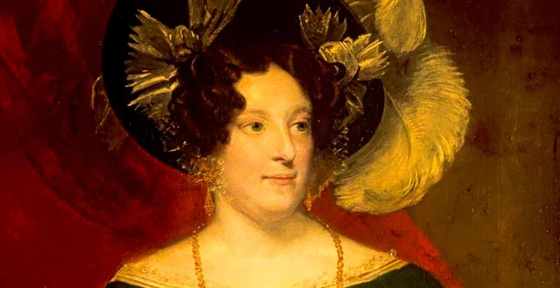On translation - Sarah Watling in TLS:
‘When King George IV tried to divorce his wife, Caroline of Brunswick, in 1820, those tasked with judging whether she was guilty of adultery were faced with two equally pressing questions: of the trustworthiness of foreigners and the reliability of translators. Caroline was of German origin; she had also been persuaded to spend the previous six years in Italy. The key witnesses for the prosecution, many of them servants from her household, were Italian, French and German, and gave their evidence through interpreters. (Caroline was allowed to attend the hearing, but not to speak at it.)’
(…)
‘A journalist, translator and interpreter, Anna Aslanyan illustrates in Dancing on Ropes: Translators and the balance of history that translation can be a pretty thankless task. A UN interpreter once observed to her that “a job well done is when no one complains”: the best work goes unnoticed. Because of the intricacies and pliability of language, almost any translation is open to challenge. In that most exposing of endeavours – the struggle to be understood – a kind of reverse shooting the messenger occurs: the problem arising not when the message is delivered but when it isn’t, or when something about its reception implies that it wasn’t delivered in the right way. (Silvio Berlusconi’s main criterion for judging his interpreter’s work appears to have been whether his audience laughed at his jokes or not.) Although the book, which ranges engagingly across period, geography and media, does touch on literary translation, its primary focus is on diplomatic or judicial contexts, and often (spoken) interpreting rather than (written) translation. Examples like the one above are mustered to illumine both the complexities of the craft and the thorny question of the translator’s agency.’
(…)
‘Dancing on Ropes includes a damning account of the post-austerity state of interpreting in the British court system, where irresponsible outsourcing has led to chaos and falling standards, threatening the right of those passing through it to be heard and understood. If the wide range of translation tales, successful and otherwise, in this book tell us anything, it is that translators provide a service that we can’t afford to do without, or to do carelessly.’
Read the article here.
Usually, translators are the best readers and reading is always an act of interpreting. Although many readers and writers love to be in denial.
Spoken interpreting is top sport, which doesn’t mean that translation in writing is less difficult. The time pressure is just slightly less intense.
It’s not so much the case that something is lost in translation, often something is gained, but it’s not always what you hope for.
Nothing is more difficult than translating jokes. Humor after all is a combination of timing, subtlety and a few vulgarisms.
I vividly remember a discussion about the Italian translation of one my novels in which a Dutch mouse became an Italian rat, or the other way around, just to avoid word repetition.
What can be done in one language can’t be done in another language, at least that’s what some interpreters love to tell you.
